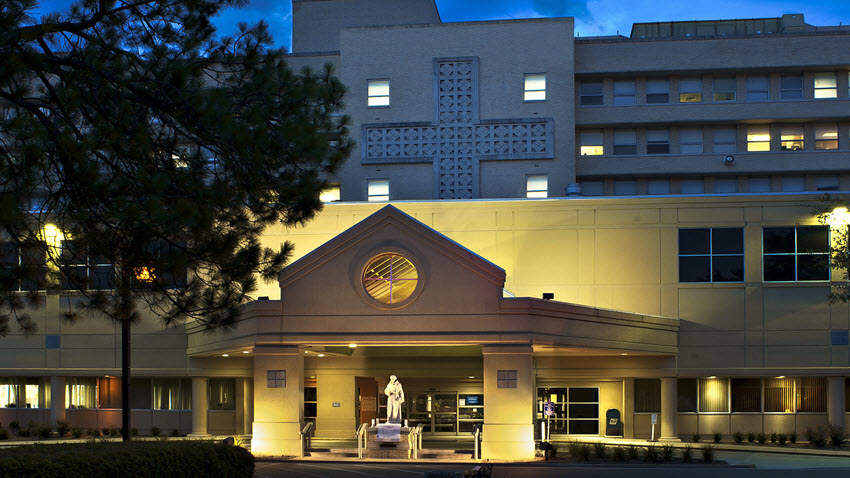For Visitors
Our visiting policy has changed due to COVID-19. Please CLICK HERE for current visiting information.
Visitors can help lift the spirits of patients and help with their recuperation process. We want you to enjoy your time at St. Francis Medical Center while you are visiting your hospitalized family member or friend. To provide the best care, security, privacy and comfort for all patients, we ask you to follow these guidelines for hospital visits:
- Children under the age of 12 are not allowed to visit (click above for current policy with more details and exceptions).
- Keep in mind all patients' need for rest, quiet and privacy. Discourage family and friends with colds, sore throats and other viruses or infections from visiting the patient in the hospital. Since patients are susceptible to contagious illnesses, encourage ill well-wishers to call, write or email instead.
- Respect all "no visitor," "isolation" or any other signs that have been ordered by the attending physician.
- Observe our need for quiet. Have conversations quietly and in private. Place your cell phone on vibrate.
- Visit in small groups or three or less. Larger groups can be overwhelming to patients and can intrude into other families' needs for privacy.
- End your visit by 9 pm when the evening prayer is read and the lights are dimmed.
Condition H (Help) Ext. 1111
We believe in delivering the safest care possible. Open communication with the nurse and care team is the key to ensure we are aware of the patient's needs. A family member may notice a change in the patient's condition before the nurse, doctor or other provider does. The change may be subtle and noticeable only to someone who is close to that person. Calling a Condition H is like calling 911 when in the hospital. The team responding includes a nurse, respiratory therapist and if needed, a doctor. Other providers who care for you during your stay such as the care coordinator, social worker and chaplain are also available. Your nurse can contact them for you.
When to Call a Condition H
If you notice a sudden, medical change in the patient's condition including difficulty breathing, a sudden onset of confusion, or he/she is becoming less responsive. If you have serious concerns about how the patient's care is being planned or managed and you are not getting the response you need from your care team. For more information about Condition H, talk to your nurse. Thank you for being our partner in care.

